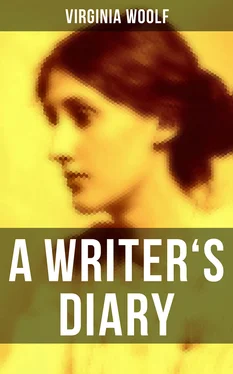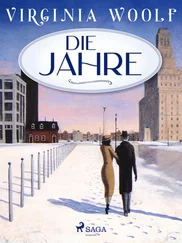Monday, August 19th.
I finished by the way the Electra of Sophocles, which has been dragging on down here, though it’s not so fearfully difficult after all. The thing that always impresses me fresh is the superb nature of the story. It seems hardly possible not to make a good play of it. This perhaps is the result of having traditional plots which have been made and improved and freed from superfluities by the polish of innumerable actors and authors and critics, till it becomes like a lump of glass worn smooth in the sea. Also, if everyone in the audience knows beforehand what is going to happen, much finer and subtler touches will tell, and words can be spared. At any rate my feeling always is that one can’t read too carefully, or attach enough weight to every line and hint; and that the apparent bareness is only on the surface. There does, however, remain the question of reading the wrong emotions into the text. I am generally humiliated to find how much Jebb is able to see; my only doubt is whether he doesn’t see too much—as I think one might do with a bad modern English play if one set to work. Finally, the particular charm of Greek remains as strong and as difficult to account for as ever. One feels the immeasurable difference between the text and the translation with the first words. The heroic woman is much the same in Greece and England. She is of the type of Emily Brontë. Clytaemnestra and Electra are clearly mother and daughter, and therefore should have some sympathy, though perhaps sympathy gone wrong breeds the fiercest hate. E. is the type of woman who upholds the family above everything; the father. She has more veneration for tradition than the sons of the house; feels herself born of the father’s side and not of the mother’s. It’s strange to notice how although the conventions are perfectly false and ridiculous, they never appear petty or undignified as our English conventions are constantly made to do. Electra lived a far more hedged in life than the women of the mid-Victorian age, but this has no effect upon her, except in making her harsh and splendid. She could not go out for a walk alone; with us it would be a case of a maid and a hansom cab.
Tuesday, September 10th.
Though I am not the only person in Sussex who reads Milton, I mean to write down my impressions of Paradise Lost while I am about it. Impressions fairly well describes the sort of thing left in my mind. I have left many riddles unread. I have slipped on too easily to taste the full flavour. However I see, and agree to some extent in believing, that this full flavour is the reward of highest scholarship. I am struck by the extreme difference between this poem and any other. It lies, I think, in the sublime aloofness and impersonality of the emotion. I have never read Cowper on the sofa, but I can imagine that the sofa is a degraded substitute for Paradise Lost. The substance of Milton is all made of wonderful, beautiful and masterly descriptions of angels’ bodies, battles, flights, dwelling places. He deals in horror and immensity and squalor and sublimity but never in the passions of the human heart. Has any great poem ever let in so little light upon one’s own joys and sorrows? I get no help in judging life; I scarcely feel that Milton lived or knew men and women; except for the peevish personalities about marriage and the woman’s duties. He was the first of the masculinists, but his disparagement rises from his own ill luck and seems even a spiteful last word in his domestic quarrels. But how smooth, strong and elaborate it all is! What poetry! I can conceive that even Shakespeare after this would seem a little troubled, personal, hot and imperfect. I can conceive that this is the essence, of which almost all other poetry is the dilution. The inexpressible fineness of the style, in which shade after shade is perceptible, would alone keep one gazing into it, long after the surface business in progress has been despatched. Deep down one catches still further combinations, rejections, felicities and masteries. Moreover, though there is nothing like Lady Macbeth’s terror or Hamlet’s cry, no pity or sympathy or intuition, the figures are majestic; in them is summed up much of what men thought of our place in the universe, of our duty to God, our religion.
Table of Contents
Monday, January 20th.
I mean to copy this out when I can buy a book, so I omit the flourishes proper to the new year. It is not money this time that I lack, but the capacity, after a fortnight in bed, to make the journey to Fleet Street. Even the muscles of my right hand feel as I imagine a servant’s hand to feel. Curiously enough, I have the same stiffness in manipulating sentences, though by rights I should be better equipped mentally now than I was a month ago. The fortnight in bed was the result of having a tooth out, and being tired enough to get a headache—a long dreary affair, that receded and advanced much like a mist on a January day. One hour’s writing daily is my allowance for the next few weeks; and having hoarded it this morning I may spend part of it now, since L. is out and I am much behindhand with the month of January. I note however that this diary writing does not count as writing, since I have just re-read my year’s diary and am much struck by the rapid haphazard gallop at which it swings along, sometimes indeed jerking almost intolerably over the cobbles. Still if it were not written rather faster than the fastest typewriting, if I stopped and took thought, it would never be written at all; and the advantage of the method is that it sweeps up accidentally several stray matters which I should exclude if I hesitated but which are the diamonds of the dustheap. If Virginia Woolf at the age of 50, when she sits down to build her memoirs out of these books, is unable to make a phrase as it should be made, I can only condole with her and remind her of the existence of the fireplace, where she has my leave to burn these pages to so many black films with red eyes in them. But how I envy her the task I am preparing for her! There is none I should like better. Already my 37th birthday next Saturday is robbed of some of its terrors by the thought. Partly for the benefit of this elderly lady (no subterfuges will then be possible: 50 is elderly, though I anticipate her protest and agree that it is not old) partly to give the year a solid foundation I intend to spend the evenings of this week of captivity in making out an account of my friendships and their present condition, with some account of my friends’ characters; and to add an estimate of their work and a forecast of their future works. The lady of 50 will be able to say how near to the truth I come; but I have written enough for tonight (only 15 minutes, I see).
Wednesday, March 5th.
Just back from four days at Asheham and one at Charleston. I sit waiting for Leonard to come in, with a brain still running along the railway lines, which unfits it for reading. But oh, dear, what a lot I’ve got to read! The entire works of Mr James Joyce, Wyndham Lewis, Ezra Pound, so as to compare them with the entire works of Dickens and Mrs Gaskell; besides that George Eliot; and finally Hardy. And I’ve just done Aunt Anny, on a really liberal scale. Yes, since I wrote last she has died, a week ago today to be precise, at Freshwater, and was buried up at Hampstead yesterday, where six or seven years ago we saw Richmond buried in a yellow fog. I suppose my feeling for her is half moonshine; or rather half reflected from other feelings. Father cared for her; she goes down the last, almost, of that old 19th Century Hyde Park Gate world. Unlike most old ladies she showed very little anxiety to see one; felt, I sometimes think, a little painfully at the sight of us, as if we’d gone far off and recalled unhappiness, which she never liked to dwell on. Also, unlike most old Aunts she had the wits to feel how sharply we differed on current questions; and this, perhaps, gave her a sense, hardly existing with her usual circle, of age, obsoleteness, extinction. For myself, though she need have had no anxieties on this head, since I admired her sincerely; but still the generations certainly look very different ways. Two or perhaps three years ago L. and I went to see her; found her much diminished in size, wearing a feather boa round her neck and seated alone in a drawing room almost the copy, on a smaller scale, of the old drawing room; the same subdued pleasant air of the 18th Century and old portraits and old china. She had our tea waiting for us. Her manner was a little distant, and more than a little melancholy. I asked her about father, and she said how those young men laughed in a ‘loud melancholy way’ and how their generation was a very happy one, but selfish; and how ours seemed to her fine but very terrible; but we hadn’t any writers such as they had. ‘Some of them have just a touch of that quality; Bernard Shaw has; but only a touch. The pleasant thing was to know them all as ordinary people, not great men.’ And then a story of Carlyle and father; Carlyle saying he’d as soon wash his face in a dirty puddle as write journalism. She put her hand down, I remember, into a bag or box standing beside the fire, and said she had a novel, three quarters written, but couldn’t finish it. Nor do I suppose it ever was finished; but I’ve said all I can say, dressing it up a trifle rosily, in The Times tomorrow. I have written to Hester, but how I doubt the sincerity of my own emotion!
Читать дальше











